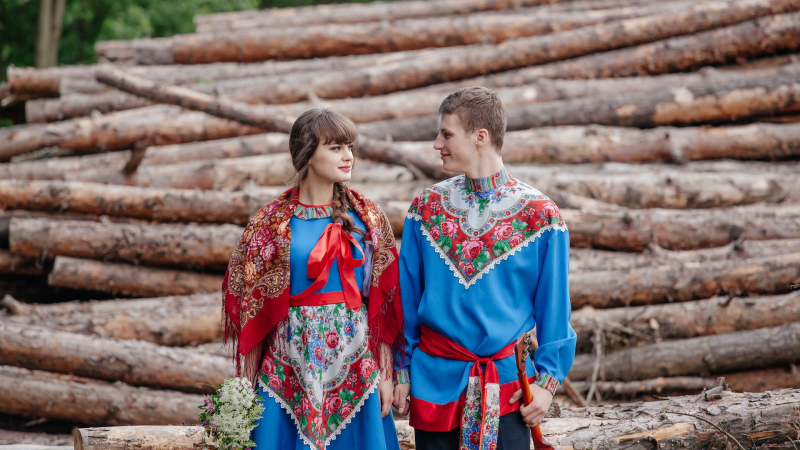In the distant past, a wedding was the culmination of a long process that started with matchmaking – svatovstvo, which often coincided with Maslenitsa. It wasn’t always the groom who came to the bride’s house to propose in the first place, as this could also be done by his representatives, svaty. They paid a visit to the bride-to-be’s family late at night and made the offer allegorically: for example, by saying something like “you have the goods, we have a buyer.”
The next stage was called smotriny (from smotret’ – to see or to check out), when the groom, the bride, and their families could get to know each other better and pay each other visits. Only if everything went well was the engagement finalized and both sides started to discuss the wedding details. It was called rukobitie (from ruka – hand, and bit’ – to hit or to slap) because the fathers of the groom and the bride shook hands to conclude the agreement.
Nowadays, the wedding is seen as a happy occasion, but in the past, one could easily confuse it with… a funeral. Not because the event was considered tragic per se, but because it meant that the bride symbolically died as a young girl and entered a new stage of her life as a married woman. Such an approach was especially widespread in the Russian North; in this case, the wedding, as well as the devichnik (bachelorette party), was accompanied by sad songs and weeping.
The wedding day itself was also rich with customs, some of which are still popular today. For example, sharing a karavai, a type of round bread. Nowadays, the tradition is simple: the groom and the bride take a bite of it and whoever ends up with the biggest chunk is supposed to be the head of the family. In the past, however, the ritual was much more complex: it started with baking the bread in a special manner – with rituals like placing the bread into the oven three times before leaving it there, then hiding the karavai from everyone until the right moment, and finally sharing it in a specific order while singing.
Another tradition still popular today – although also despised by many – is the guests at the wedding saying “Gorko!” (“Bitter!”) until the bride and the groom kiss. The premise behind this ritual is that the guests pretend their drinks taste bitter, so the newlyweds should “sweeten them up” by kissing. You can hear gorko shouted countless times throughout the wedding day.
Check out our recent stories on Slavic traditions and folklore here and here.




